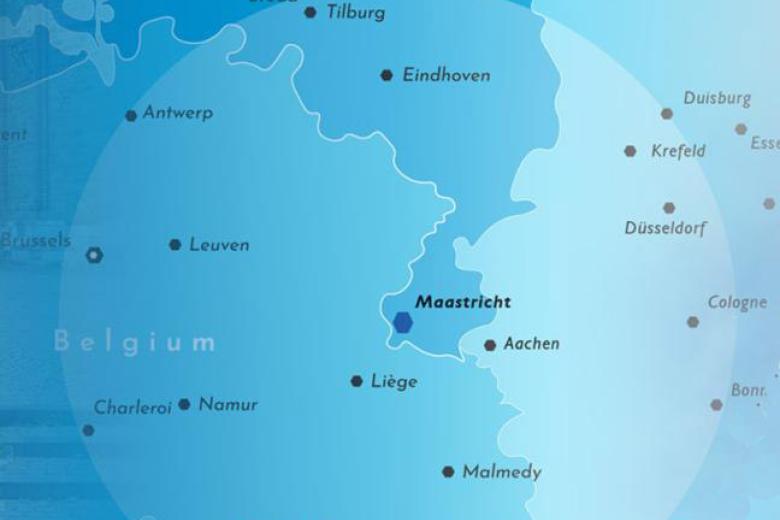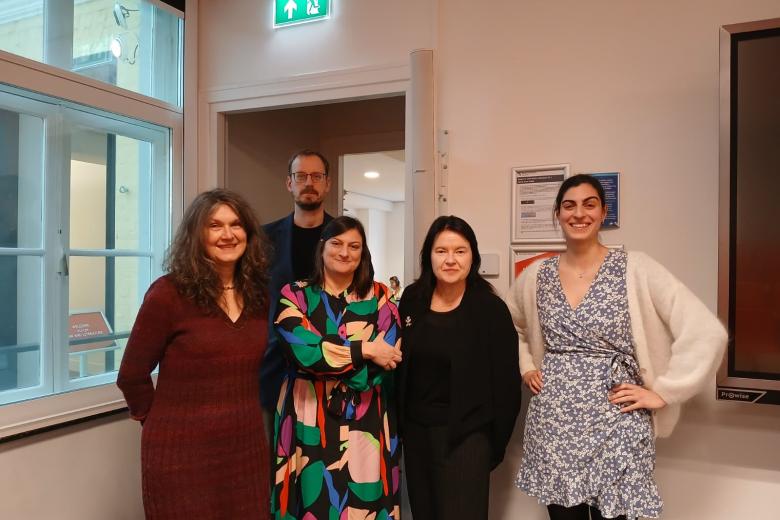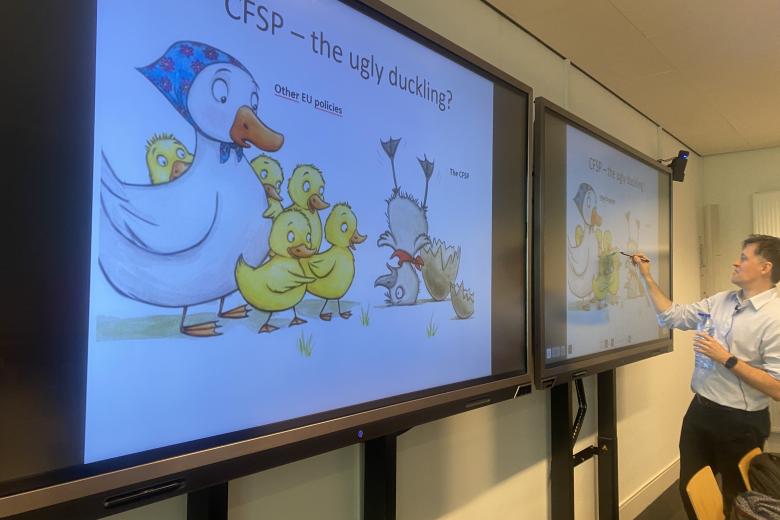Mercator-Hondius renaissance atlas on loan at UM
Maastricht University (UM) will sign a very special loan agreement on Tuesday 14 July. Under this agreement, a renaissance atlas dating from 1628 – the 10th edition of the Mercator-Hondius atlas –will be made available to the University Library for the purposes of education and research. Until now the atlas, ecclesiastical heritage of the Catholic parish H. Remigius, has been held behind closed doors in the vault of the Simpelveld sacristy and rectory.
“The church council places great value on the atlas being put to good use, especially for the purposes of study and scholarship”, says Pastor René Pisters. “This is why we decided to loan it to an academic institution like the Maastricht University Library, which has the conditions in place to guarantee its preservation.” This way, the atlas will not only be on display, but also safeguarded for future generations.
150 gems of engraving
This 10th edition of the atlas was created in 1628 and contains more than 150 maps, each of them a precious gem of the art of engraving. The maps were coloured by hand, and are notable for their enormous detail and highly realistic depiction of the then known world. This is the first edition in which Hondius signed his name under some of the Mercator maps. The Maastricht City Library is the only institution in the Netherlands to have a copy of the atlas.
Festive signing
The signing on 14 July will showcase lectures by the city historian Roelof Braad on important features of the atlas and the special collections curator Odin Essers on the use of the atlas for education and research. After the lectures, the two parties will sign the loan agreement.
Jodocus Hondius
The Flanders native Jodocus Hondius (1563–1612) is best known for republishing the atlases of Gerardus Mercator. He bought Mercator’s copper plates in 1604, and expanded the atlas with 36 new maps in 1606. Until 1636 new, augmented editions appeared in different languages.
Also read
-
DigiMach places Meuse-Rhine Euroregion at the heart of industrial digitalisation
DigiMach (Digital Machining) is a new cross-border project uniting Belgium, Germany, and the Netherlands around a common goal: accelerating the digitalisation of the machining industry in the Meuse-Rhine Euroregion.
-
Globalisation & Law Network seminar with Áine Ryall
On 24 November 2025, the Globalisation & Law Network, together with the Institute for Globalisation and International Regulation (IGIR) held the seminar with Professor Áine Ryall.
-
Guest Lecture: Lóránt Havas explores current challenges in the EU’s CFSP
Lóránt Havas delivered a guest lecture on the EU’s evolving CFSP, discussing key legal developments, institutional challenges, and new defence instruments.